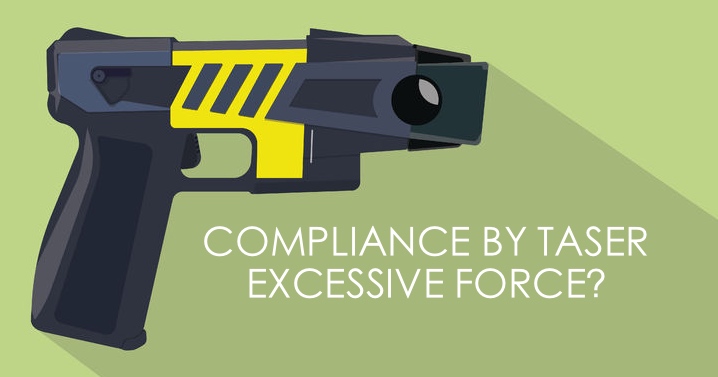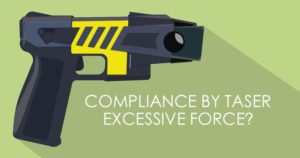




 Delafuente v. State (14th Court of Appeals) April 3, 2012
Delafuente v. State (14th Court of Appeals) April 3, 2012
I observed a traffic congestion in the inside westbound lane [on Interstate 10 in Waller County]. Traffic volume was moderate. I inspected further and observed a grey Chevrolet 4 door sedan . . . traveling below the prima facie limit of 65 miles per hour and Impeding Traffic. I paced the vehicle, which was traveling at approximately 52 miles per hour . . . . I initiated a traffic stop of the vehicle.
This traffic stop led to the search of the vehicle and the seizure of marijuana. The driver of the vehicle was later convicted of Class B misdemeanor possession of marijuana. The primary question on appeal to the 14th District Court of Appeals (Houston) was whether a vehicle traveling below the speed limit necessarily creates reasonable suspicion to initiate a traffic stop.
The appellate court explained:
Under Texas law, a vehicle “may not drive so slowly as to impede the normal and reasonable movement of traffic, except when reduced speed is necessary for safe operation or in compliance with law.” Tex. Transp. Code § 545.363(a). “Slow driving, in and of itself, is not a violation of the statute; a violation only occurs when the normal and reasonable movement of traffic is impeded.” Tex. Dep’t of Pub. Safety v. Gonzales, 276 S.W.3d 88, 93 (Tex. App.–San Antonio 2008, no pet.).
Noting that the only evidence at trial on this issue was the police officer’s report which contains a conclusory statement that appellant was “impeding traffic,” but no articulable facts (other than the speed of his vehicle), the court held that the trial court erred in denying appellant’s motion to suppress.
The dissent believed that there were enough facts in the record to support the stop, and would have upheld the trial court’s ruling.
Analysis: While traveling below the speed limit may indeed be enough to get you pulled over, the officer must indicate, either in his report or on the stand at trial, what specific articulable facts led to the reasonable suspicion that you were “impeding traffic” such that his stop was justified. Short of that, it is an unreasonable stop under that law.
The District and County Attorney’s Association was not too pleased with this opinion. Here is its analysis:
This is the kind of decision that drives me crazy. The officer testified that the defendant was “impeding traffic” based upon his slower speed. The trial court found and ruled in his favor. Should not the trial court’s ruling be upheld? Unfortunately, this holding is line with a similar decision of the Court of Criminal Appeals in which the court held that the State failed to prove that a defendant committed a traffic violation of following too closely because all that the officer testified was that the defendant was following too closely. I suppose that when an officer testifies that the defendant was “impeding traffic,” you should then ask the officer, “In what observable way was the defendant impeding traffic?” Were cars having to constantly go around him? Were they honking? Still, a trial court’s ruling should be upheld if it is supported by the record. Maybe the Court of Criminal Appeals will review this decision, especially since there is a dissenting opinion.
 The State of Texas charged and convicted Billie Jean Avery of attempting to obtain a controlled substance “through use of a fraudulent prescription form.” The evidence presented at trial, however, revealed that the defendant actually used a legitimate prescription form, but that she forged some data on her prescription information in an attempt to obtain stronger pain pills.
The State of Texas charged and convicted Billie Jean Avery of attempting to obtain a controlled substance “through use of a fraudulent prescription form.” The evidence presented at trial, however, revealed that the defendant actually used a legitimate prescription form, but that she forged some data on her prescription information in an attempt to obtain stronger pain pills.
In her appeal to the 13th District Court of Appeals (Corpus Christie), Appellant argued that she could not be convicted of using a “fraudulent prescription form” when the prescription form she used was legitimate. The Court of Appeals agreed and acquitted her of the offense.
On discretionary review, the Texas Court of Criminal Appeals affirmed Court of Appeals’ affirmed judgment of acquittal. In a unanimous opinion, the CCA explained:
Just as tax information should be recorded on a tax form to create a competed tax return, so too prescription information should be recorded on a prescription form to create a completed prescription. The information that is written on the form is not the form itself…[W]e hold that “prescription form” refers to a pre-printed form designed to have prescription information written on it.
This was a case of a simple charging error by the District Attorney’s office, but it goes to show that attention to detail can win the day.

 In 1996, the Texas Court of Criminal Appeals held in Rachal v. State, 917 S.W.2d 799, that when reviewing a trial court’s decision on a motion to suppress, an appellate court should look “only to the evidence adduced at the suppression hearing,” unless the “suppression issue is consensually re-litigated by the parties during trial on the merits.”
In 1996, the Texas Court of Criminal Appeals held in Rachal v. State, 917 S.W.2d 799, that when reviewing a trial court’s decision on a motion to suppress, an appellate court should look “only to the evidence adduced at the suppression hearing,” unless the “suppression issue is consensually re-litigated by the parties during trial on the merits.”
In a recent case in the CCA, Black v. State, the Appellant, who was convicted at trial of possession of methamphetamine with intent to deliver, argued on appeal that:
a trial court, once it has ruled on a pretrial motion to suppress, lacks the authority to “re-open” the suppression issue unless the defendant has “made an election” to do so by either subsequently re-raising the suppression issue himself or acquiescing in the State’s reintroduction of the issue at trial.
Appellant relied on the CCA’s holding in Rachal to support his position. The State countered by arguing that the Rachal holding “speaks only to a limitation on what is available for appellate review of a trial court’s ultimate ruling on a pretrial suppression motion,” and not to the trial court’s authority to re-open a suppress motion. The CCA agreed with the State.
In an 8-1 decision that relied largely on a 1993 Court of Appeals opinion (Montalvo v. State, 846 S.W.2d 133 (Tex. App.—Austin 1993, no pet.)), the CCA explained:
A pretrial ruling on such a motion is interlocutory in nature. As such, it should be regarded as just as much the subject of reconsideration and revision as any other ruling on the admissibility of evidence under Rule 104 of the Texas Rules of Evidence, which a trial court may revisit at its discretion at any time during the course of a trial.
In Black’s case, the CCA went on to hold that the trial court had the discretionary authority to reopen the suppression hearing, even mid-trial, to allow the State to present additional evidence. To clarify that its current holding in Black did not disturb previous precedent, the CCA expressed a general rule and a corollary rule that explain what evidence appellate courts should consider when reviewing motions to suppress.
GENERAL RULE: In cases in which the trial court is never asked, or is asked but declines, to exercise its discretionary authority to reopen the suppression hearing, appellate review of its ruling on the motion to suppress is ordinarily limited to that evidence presented at the pretrial hearing – the evidence that was before the court at the time of its decision.
The exception to the General Rule, the CCA provided, was “if the parties consensually broach the suppression issue again before the fact-finder at trial, the reviewing court should also consider” that evidence in gauging the propriety of the trial court’s ruling on the motion to suppress.
COROLLARY RULE: If at any point before the conclusion of final arguments at trial, the trial court should exercise its discretionary authority to reopen the suppression hearing, the reviewing court should also consider whatever additional evidence may be spread on the record bearing on the propriety of the trial court’s ultimate ruling on the motion to suppress.
The CCA affirmed the holding of the 10th Circuit Court of Appeals which affirmed the trial court’s judgment.
Judge Meyers dissented, and is of the opinion that the trial court erred by reopening the suppression hearing without the defendant’s consent.

 Boy, do we love our cellphones. They are our phone books, our computers, our gaming systems, our cameras, our music players, you name it. When a person’s cell phone is such a multifaceted device, how can that affect their legal rights under a search warrant? Read the summary of the case below to find out more about how the 4th Amendment applies to a cell phone search.
Boy, do we love our cellphones. They are our phone books, our computers, our gaming systems, our cameras, our music players, you name it. When a person’s cell phone is such a multifaceted device, how can that affect their legal rights under a search warrant? Read the summary of the case below to find out more about how the 4th Amendment applies to a cell phone search.
United States v. Aguirre, U.S. Court of Appeals for the Fifth Circuit (Federal), December 13, 2011
In this case, Appellant was convicted of using a communications facility to facilitate a drug trafficking crime in violation of 21 U.S.C. § 843(b). On appeal, she challenges the district court’s denial of her motion to suppress evidence, claiming that the search and seizure of her cell phone was tainted by law enforcement officers’ illegal entry into a home where she was a guest. The 5th Circuit found her arguments unpersuasive and affirmed the judgment.
Federal agents arrested a drug suspect shortly after he drove away from his home and they recovered marijuana and cocaine from his car. The agents went back to the suspect’s home to conduct a knock and talk interview with the remaining occupants. After knocking on the door and announcing themselves, the agents received no verbal response but did see a person look through the window, then quickly retreat toward the back of the home. Fearing the destruction of drug evidence, the officers immediately entered the home without a warrant or consent. Once inside the home the agents saw marijuana and drug paraphernalia in plain sight. The agents secured the home and the occupants while they applied for a search warrant. After obtaining the search warrant, the agents searched Appellant’s cell phone that was lying in plain view on a bed, and discovered several incriminating text messages.
The court held that the agents’ warrantless entry into the home was lawful. First, they had probable cause to believe it contained evidence of illegal drugs and drug dealing. Agents had just arrested the first drug suspect, after watching him leave the home, and had recovered marijuana and cocaine from his car. Second, after knocking and announcing their presence, the reaction of the remaining occupants reasonably caused the agents to believe that evidence was being destroyed. The agents’ entry into the home was justified by the exigent circumstance of destruction of evidence and supported by probable cause.
Appellant argued that the search and seizure of her cell phone was improper because the warrant did not particularly describe it as one of the items to be seized. The court noted that while the Fourth Amendment requires that a warrant particularly describe the place to be searched and the person or thing to be seized, each item does not need to be precisely described in the warrant. The particularity requirement can be satisfied where a seized item is not specifically named in the warrant, but the functional equivalent of other items are adequately described. Here, the agents were authorized to search for items used to facilitate drug trafficking to include records, correspondence, address books and telephone directories. While this list did not include cell phones, the court held that cellular text messages, the directory and call logs of Appellant’s cell phone could be characterized as the functional equivalent of several items included in the search warrant such as: correspondence, address books and telephone directories. Appellant’s cell phone served as the equivalent of records and documentation of sales or other drug activities and as such, the agents lawfully searched it under the authority of the search warrant.
I suppose this ruling was just a matter of time in our iPhone culture.

 In a recent case from the U.S. Court of Appeals for the Fifth Circuit (Federal), the court considered whether police interrogation of a suspect violated the suspect’s constitutional right to an attorney when the suspect voluntarily continued the conversation with the officers.
In a recent case from the U.S. Court of Appeals for the Fifth Circuit (Federal), the court considered whether police interrogation of a suspect violated the suspect’s constitutional right to an attorney when the suspect voluntarily continued the conversation with the officers.
United States v. Carillo – While the defendant was in jail on a parole violation, officers went to interview him about his involvement in a drug distribution conspiracy. After being read his Miranda rights, the defendant invoked his right not to be questioned without an attorney present. The officers stopped talking to him and left. The next day the defendant told jailers that he wished to speak to the officers from the day before. The officers returned to the jail, advised him of his Miranda rights, which then led to a discussion about the defendant’s right to an attorney. The defendant made three comments during this time. He told the officers, “I wish I had a lawyer right here,” “I wanted to see if we could push this thing to where I could get my lawyer,” and “I wanted to see if you could work with me and push this deal to where I can get a lawyer and just sit down and talk about it.” After one of the officers told the defendant that he would get an attorney at his arraignment, the defendant asked the officer what would happen if he agreed to talk to the officer now. The kind and helpful officer told the defendant that he would just be cooperating and helping himself and once he got into the federal system he would get an attorney. Hearing those words of encouragement, the defendant agreed to talk to the officers and (of course) made several incriminating statements, which led to his conviction.
On appeal, the appellant contended that his confession should have been suppressed because it was obtained in violation of his constitutional right not to be interrogated while in police custody without an attorney present, under Miranda v. Arizona, 384 U.S. 436 (1966).
The 5th Circuit recognized that the defendant’s three comments, when viewed separately, appeared to indicate that he was invoking his right to counsel. However, the Court held that when considering the entire context in which the defendant made the comments, a reasonable police officer would not have understood him to be saying that he wanted to stop talking with the police without an attorney present. The court held that the defendant’s comments to the officers were ambiguous at best. They expressed the defendant’s preference to have an attorney present, however, the fact that he kept talking to the officers indicated that he also wished to keep the interview going and not to end it by invoking his right to counsel. The defendant re-initiated communication with the officers after he ended the interview the day before by invoking his right to counsel, so he was clearly aware of how he could end the interview. The defendant was merely weighing the pros and cons of talking to the officers without an attorney present which he eventually decided to do.

This month’s Texas Bar Journal alerts us to a few new criminal laws in Texas that our elected officials have just added to the books. Below are some of the more interesting (imo) additions:
Bath Salts – House Bill 2118 outlaws the possession of bath salts, or the chemicals contained in bath salts. Apparently, folks were using bath salts as alternatives to cocaine, LSD, ecstasy, and methamphetamine. This is now a felony offense.
Spice – Senate Bill 331similarly bans the possession of synthetic marijuana (i.e. “K2” or “Spice”). Depending on the quantity of the substance possessed, this new offense will be a Class B misdemeanor up to a first-degree felony.
Sexting for Minors – Under Senate Bill 407, Texas teenagers that send naked photographs via text message will no longer be deemed to have sent “child pornography.” Sexting will now be considered a Class C misdemeanor for a first offense.

 Supreme Court Case Review – Kentucky v. King, opinion dated May 16, 2011:
Supreme Court Case Review – Kentucky v. King, opinion dated May 16, 2011:
Officers set up a controlled buy of crack cocaine outside an apartment complex. After the deal, the suspect went into the apartment building. Officers followed the suspect into a breezeway where they saw two apartments, one on the left and one on the right. The officers did not see which apartment the suspect entered. The officers smelled marijuana smoke emanating from the apartment on the left as they approached the door.
One of the officers knocked loudly on the door an announced, “Police, police, police.” The officers did not demand entry or threaten to break down the door. As soon as the officer started banging on the door, he heard noises that led him to believe that drug related evidence was being destroyed inside the apartment. At this point, the officers announced they were going to enter the apartment and they kicked down the door. Once inside the apartment the officers performed a protective sweep and recovered marijuana and powder cocaine in plain view. Officers eventually entered the apartment on the right and found the suspected drug dealer who was the initial target of their investigation.
One well recognized exception to the warrant requirement applies when the exigencies of the situation makes the needs of law enforcement so compelling that a warrantless search is objectively reasonable under the Fourth Amendment. The need to prevent the imminent destruction of evidence has been identified as one of the exigencies that may justify the warrantless search of a home. Where, as here, the police do not create the exigency by engaging or threatening to engage in conduct that violates the Fourth Amendment, warrantless entry to prevent the destruction of evidence is reasonable.
When officers who do not have a warrant knock on a door, they do no more than any private citizen might do, and the occupant has no obligation to open the door or speak to them. It was only after the officers knocked on the door and announced, “Police, police, police,” did the exigency arise. Because the officers did not violate or threaten to violate the Fourth Amendment by demanding entry, or threatening to enter the apartment, the court held that the exigency that arose afterward justified the officers’ warrantless entry into the apartment.

 Today, the Texas Court of Criminal Appeals released Meekins v. State, a case out of Lubbock County wherein the issue for appellate review was whether that State proved by clear and convincing evidence that Appellant had consented to a search of his vehicle.
Today, the Texas Court of Criminal Appeals released Meekins v. State, a case out of Lubbock County wherein the issue for appellate review was whether that State proved by clear and convincing evidence that Appellant had consented to a search of his vehicle.
At a pre-trial hearing to determine whether the drugs found during the search should be suppressed, the trial court ruled that Appellant’s consent to search was given knowingly and voluntarily. The court, therefore, refused to suppress the evidence. Here’s the evidence on which the trial court based its ruling:
After officers pulled Appellant over for failing to signal a turn, the following exchange occurred between Appellant and the officer while the officer talked to Appellant through the driver’s side window:
Officer: You don’t have anything illegal in the vehicle, no weapons or anything like that?
Appellant: No
Officer: You don’t mind if we take a look?
Appellant: (Inaudible) Look in the car or what?
Officer: Yeah.
Appellant: I don’t have anything.
Officer: Okay. You don’t mind if I look? It’s yes or no, bud.
Appellant: What do you think?
Officer: What do I think?
Appellant: Yeah.
Officer: I’m asking you to look in the car.
Appellant: (Inaudible)
Officer: Don’t reach around, bud, just in case you got a gun.
Appellant: I ain’t got no gun or nothing.
Officer: You don’t mind if we look?
Appellant: I just…(inaudible) That it (inaudible).
Officer: Okay.
Appellant: (Inaudible)
Officer: I’m asking if I can look in the vehicle. It’s yes or no.
Appellant: (Inaudible)
Officer: Is there anything else you might have? You seem a little nervous, you know what I’m saying? You’re making me nervous.
Appellant: I ain’t nervous.
Officer: Okay. Do you have anything illegal in your vehicle?
Appellant: No.
Officer: Okay. Do you mind if I look?
Appellant: I guess.
After that, the officer, believing he has been given consent, ordered Appellant to exit the vehicle. Ultimately the officer found the contraband (marijuana) in Appellant’s pocket.
The 7th District Court of Appeals (Amarillo) reversed the trial court’s ruling, holding that “the State failed to clearly and convincingly prove that Appellant granted the officer positive, unequivocal, and voluntary consent to search his car.”
In an opinion written by Judge Cochran, the CCA now reverses. Upholding the trial court’s original ruling, the CCA relied on the “totality of the circumstances” and the deference given the trial court to make factual. The CCA noted, however, that this was a close case and that if the trial judge had found that the consent was not voluntary, they would have upheld that factual finding as well.
Dissenting, Judge Meyers joined by Judge Price, states:
I certainly do not know what is clear and convincing about appellant’s alleged consent. Although the majority gives lip service to the applicable rule, the majority misapplies it because these facts are anything but clear and convincing.
The dissent goes on the state that because Appellant’s words and actions demonstrate evasiveness and reluctance rather than positive, unequivocal consent, the evidence should have been suppressed.
This case shows how important it is to fight (and win) suppression motions at the trial level. An appellate lawyer can only do so much against the mountain of deference the appellate courts give the original fact finder’s decision. As the CCA noted in this case – if the trial court had gone the other way, they would have held that way too.


The Texas Court of Criminal Appeals recently heard a case involving excessive force by police.
In, Hereford v. State the ultimate issue presented to the CCA was whether forced used by officers to recover drugs from a defendant was excessive and unreasonable. The court held that it was.
The appellant in Hereford pulled into a parking lot and got out of his car. An officer observed him and recognized him as someone he had dealt with in the past. The officer knew Hereford had outstanding warrants. The officer conducted a pat down search and arrested him for the warrants. After appellant was arrested, the officer searched his vehicle. When the officer did not find any narcotics, he called a K9 unit whose dog alerted on the car. Despite the alert, officers again failed to find any narcotics. When the officer returned to his patrol unit, appellant had his head down and was chewing on something. The officer commanded appellant to spit it out but he refused. The officer and two others then removed appellant from the patrol unit and tased him on the leg. The officer who made initial contact with appellant then grabbed him around the throat and tried to force him to spit out the substance. The officers then ceased trying to force the appellant to spit out the substance. After discussing their options for fifteen to twenty minutes, the officers decided to take the appellant to the hospital.
At the hospital, the officers appellant over to another officer working off-duty at the hospital. Appellant still had the substance in his mouth. The hospital tried to get him to release it by using ammonia capsules. This did not work. The off-duty officer then took appellant into an examining room and began to tase him repeatedly – three times in the upper inner thigh (the groin) and once in the right forearm. When he was being tased, appellant’s mouth would open involuntarily. While appellant’s mouth was open (during the tasing of his groin) the officer was able to get the substance out of his mouth. It turned out to be a plastic baggie of crack cocaine.
The issue presented for the CCA was whether, under the Fourth Amendment, the manner in which the evidence that was seized was reasonable. The court used the factors found in Winston v. Lee, 470 U.S. 753 (1985) to balance the intrusion to the appellant’s personal interests, the societal need for effective law enforcement, and the state’s need for evidence. Those factors include whether the police conduct:
Balancing those interests, the court found that the off-duty officer’s actions were unreasonable and violated appellant’s Fourth Amendment prohibition against unreasonable searches and seizures.
The CA, however, made it a point to highlight that this ruling was not to be construed to imply that the use of a Taser in these types of instances is per se unreasonable. The Court highlighted Ellis v. Columbus City Police Dep’t, No. 1:07CV123-A-A, 2009 U.S. Dist. LEXIS 95821 (N.D.Miss. September 15, 2009), where almost the same set of circumstances happened. In that case though, the suspect had lunged at officers and was openly chewing a plastic bag of cocaine. The Court differentiated that case from this one by explaining that in Ellis, the officers stopped after tasing appellant several times and the tasing occurred during the arrest (not long after and by another officer).
Presiding Judge Keller dissented without opinion.